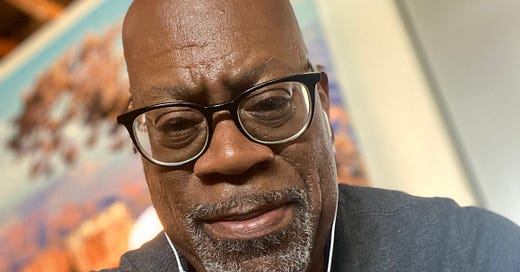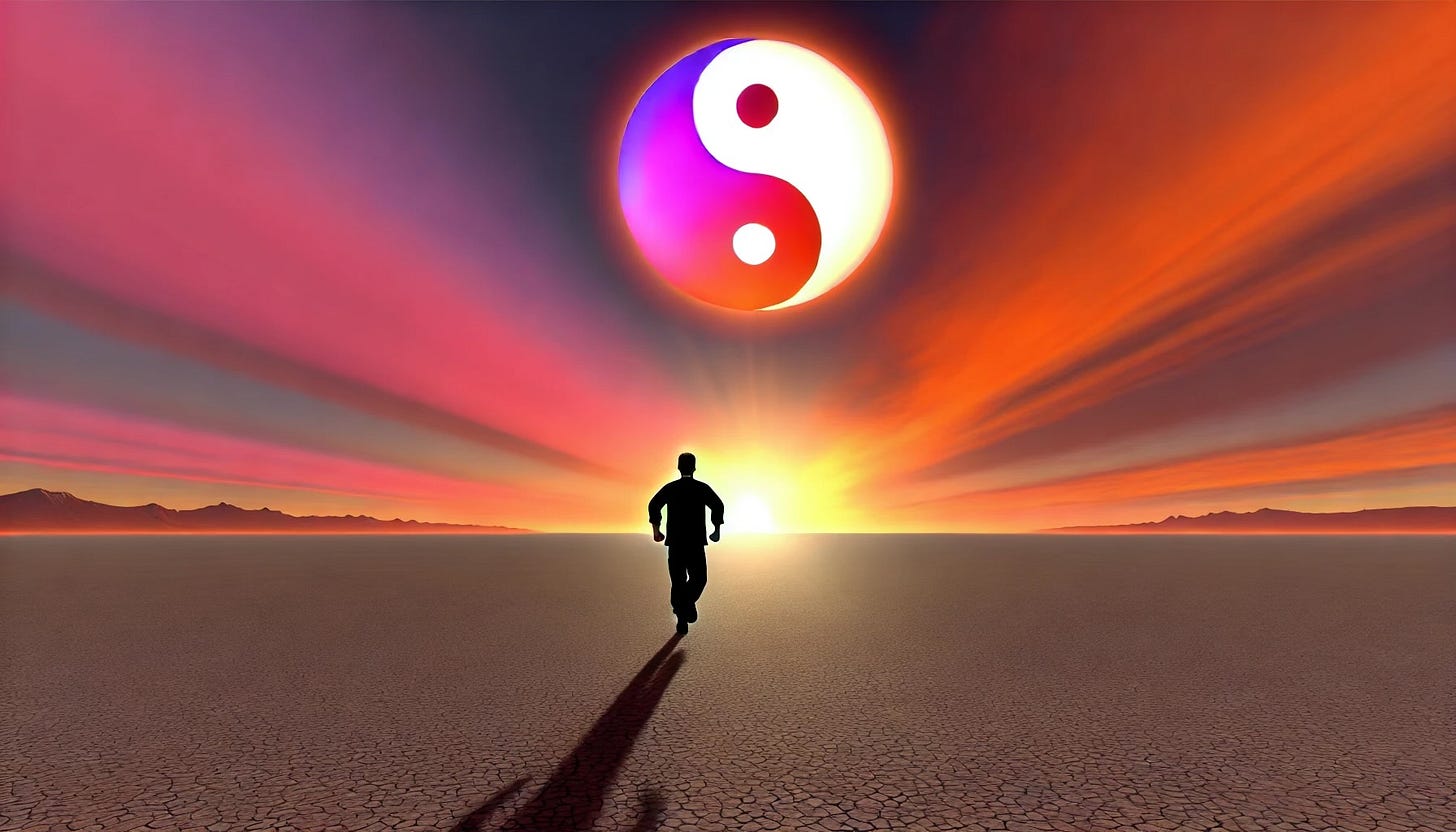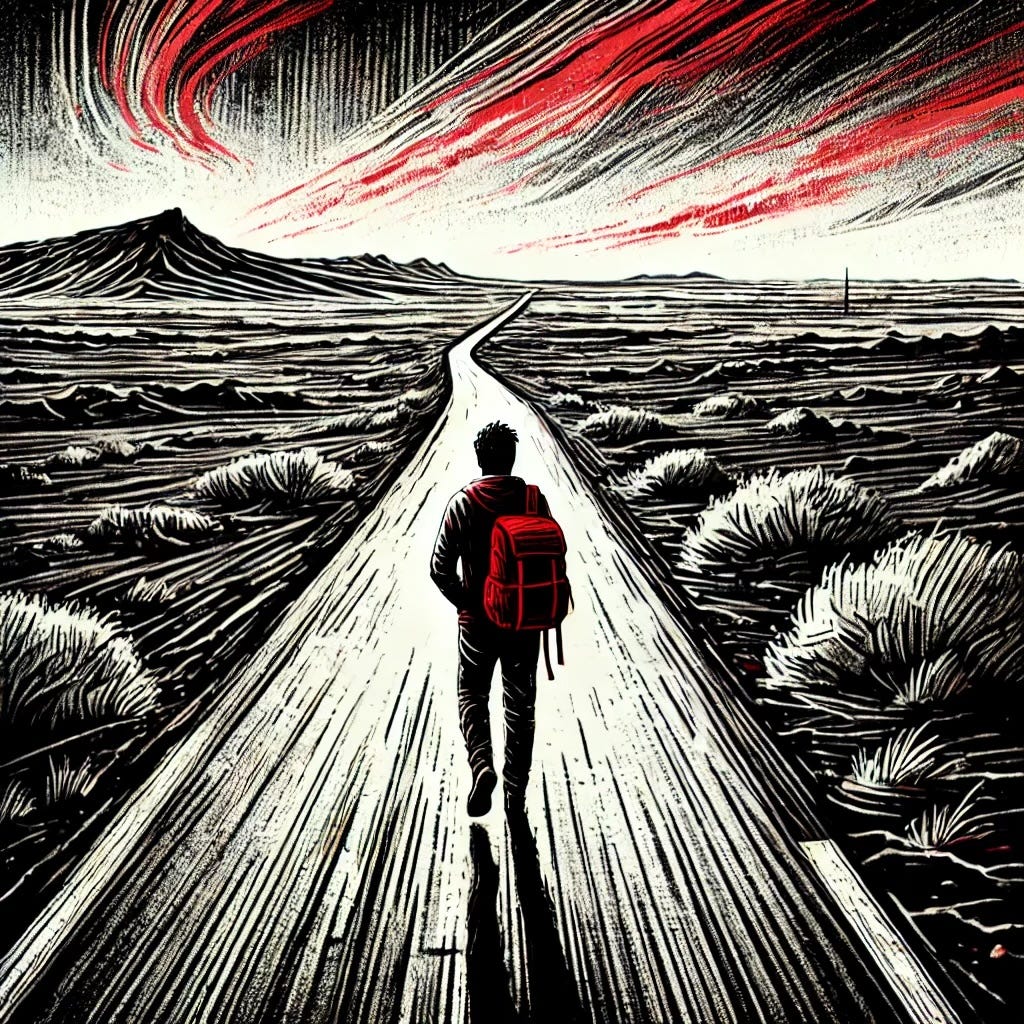As someone of the chocolate persuasion, I’ve learned to read the room before I even walk into it. It’s not something I was taught explicitly, but an instinct honed through years of being on red alert.
The way I notice the subtle stiffening of shoulders or the darting, suspicious glances. The way a hand lingers on a bag when I walk by. The way a clerk’s eyes flick to the security camera as I approach the counter.
It’s why I keep my receipts in plain sight, clenched in my hand like armor, when leaving a store with items I’ve rightfully paid for. It’s why I research neighborhoods before I move, reading between the lines of what are often referred to as “progressive communities” for what they really mean, namely, you might not belong here.
Being a Chocolate Brotha in America is an exhausting exercise in vigilance. Even the most mundane activities—checking into an Airbnb, visiting an office for a business appointment—come with a silent protocol.
Always be polite but not too familiar. Don’t appear too confident or too submissive. Never let irritation cross your face, no matter how insulting the questions or assumptions. I do this instinctively, as if my safety depends on it—because often, it does.
I’ve long understood that my presence is often unexpected, if not unwelcome. At one business meeting, the receptionist’s polite smile froze when I introduced myself. The rest of her sentence hung in the air, unfinished but unmistakable.
It’s the same reaction I’ve seen countless times: surprise laced with hesitation. Sometimes, it’s followed by warmth; other times, by distance. Either way, I’m always aware of the unspoken expectation to prove myself worthy of the space I occupy.
But the exhaustion runs deeper than these small slights. It’s in the larger, systemic realities that shape where I go, how I live, and who I trust.
Even choosing a city or town in which to reside isn’t just about job prospects or lifestyle preferences. It’s a calculation based on the unspoken realities of race: How openly racist is this area? Will my neighbors welcome me, tolerate me, or actively work against me? These aren’t questions most people have to ask, but for me, they are as automatic as breathing.
One Thanksgiving in San Diego still stings, even years later. I was invited to my partner’s family dinner, hopeful for connection and acceptance. Instead, I found myself enduring thinly veiled bigotry disguised as casual conversation. “You’re so articulate,” someone said, as if it were a compliment. “You are different from other Blacks.” Another asked, “Why do Black people always…?” before launching into a tirade of stereotypes that had no place at any table, let alone one where I was a guest.
My partner said nothing. I sat there, swallowing my discomfort, my appetite disappearing with every word. The turkey on my plate might as well have been cardboard. By the end of the night, I wasn’t just full of resentment; I was hollowed out.
But if that experience left me hollow, another filled me with clarity. I remember it vividly: a racial slur hurled at me recently on an otherwise unremarkable day. The sting of it wasn’t just in the word itself but in the casual way it was delivered, as if I wasn’t even human enough to warrant hesitation.
In that moment, something inside me shifted. It wasn’t the first time I’d experienced blatant racism, but this time it hit differently. It was what Frans Johansson, in his book The Click Moment, might call a catalytic event—a seemingly random, life-altering moment that changes everything.
That slur wasn’t just an insult; it was a challenge. It forced me to confront a question I’d been avoiding: What will you do with this? I could let it crush me, or I could let it galvanize me. I chose the latter.
That day, I made a quiet but bold decision: I would stop apologizing for taking up space. I would no longer shrink to make others comfortable. I would be unapologetically myself, not despite their hatred but because of it.
Lao Tzu writes in the Tao Te Ching about the power of yielding. Water, he says, is soft and yielding, yet it wears down rock not by force but by persistence. This has become my guiding principle.
Racism, in all its forms, is the rock—hard, oppressive, unyielding. But I am water. I adapt, I flow, and I carve my own path, no matter how resistant the terrain. This doesn’t mean passivity; it means choosing my battles with precision, responding rather than reacting, and conserving my energy for what truly matters.
The I Ching, with its emphasis on change and transformation, has also been a profound guide. In its philosophy, challenges are not just obstacles but opportunities for growth. The racial slur that day, as painful as it was, became an opportunity to transform my pain into purpose.
I began to see racism not just as a personal affront but as a mirror reflecting the fear and ignorance of others. It’s not my job to fix their brokenness, but it is my responsibility to protect my own peace.
Protecting my peace has meant letting go of the need to prove myself to those who will never see beyond their biases. It has meant setting boundaries, even with people I love, and walking away from spaces that refuse to welcome me fully. It has meant embracing my own worth, not as a reaction to their hate but as a declaration of my humanity.
But make no mistake: this path isn’t easy. There are days when the weight of it all feels unbearable. Days when the exhaustion seeps into my bones and I wonder if it’s worth the effort.
And then I am reminded of Lao Tzu’s wisdom: “A journey of a thousand miles begins with a single step.” Each step I take, no matter how small, is a victory. Each moment of grace in the face of hatred is an act of resistance. Each decision to love myself in a world that devalues me is a radical, revolutionary act.
I don’t have the luxury of living a life untouched by race. It colors everything, from my interactions with strangers to my deepest relationships.
But it has also given me a unique perspective—a way of seeing the world that is both sharp and expansive. I’ve learned to hold contradictions with grace, to find strength in vulnerability, and to see challenges as opportunities for transformation.
Being a Black man in America is exhausting. But it’s also galvanizing. It has taught me to navigate the chaos with clarity, to stand firm in my truth, and to move through the world with quiet, unyielding power. The world hasn’t changed much, but I have. And that, I’ve learned, makes all the difference.
It would warm my heart for you to subscribe today as a paid member supporter.Or I’d be grateful if you’d tip me some coffeehouse love here.
Your contributions are appreciated!
Every bit counts as I strive to deliver high quality feature articles into your inbox on a daily basis.
Never any paywalls, just my raw thoughts that are open to everyone on what it means to be human.







I have been in the same boat many times. You must always stick to:
“Racism, in all its forms, is the rock—hard, oppressive, unyielding. But I am water. I adapt, I flow, and I carve my own path, no matter how resistant the terrain. This doesn’t mean passivity; it means choosing my battles with precision, responding rather than reacting, and conserving my energy for what truly matters.”
Powerful. All your posts have a measure of the personal to them—and we often get to witness your vulnerability as you weave ancient, mystic teachings into the every day honesty of your lived life. But this one…. This one hit me deeply. And so I thank you for that. With gratitude my friend.
A portion of your piece reminded of the quote by Marianne Williamson: “Your playing small doesn’t serve the world. There is nothing enlightened about shrinking so that other’s won’t feel insecure around you.”